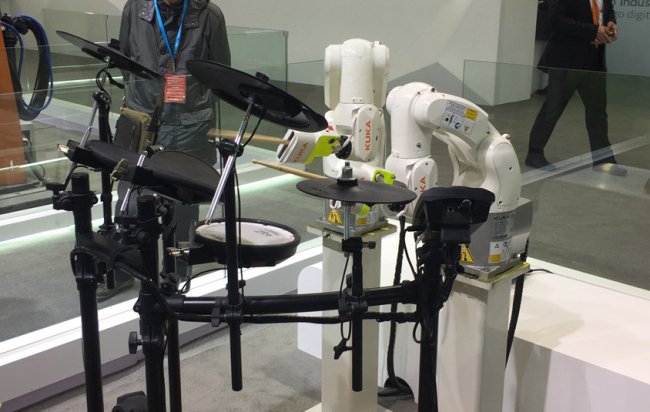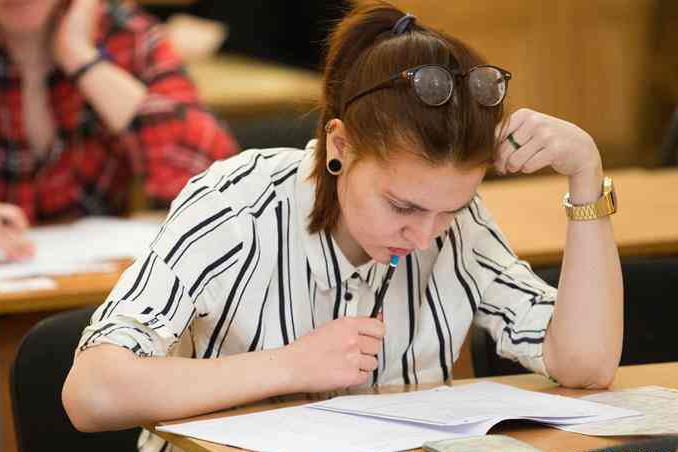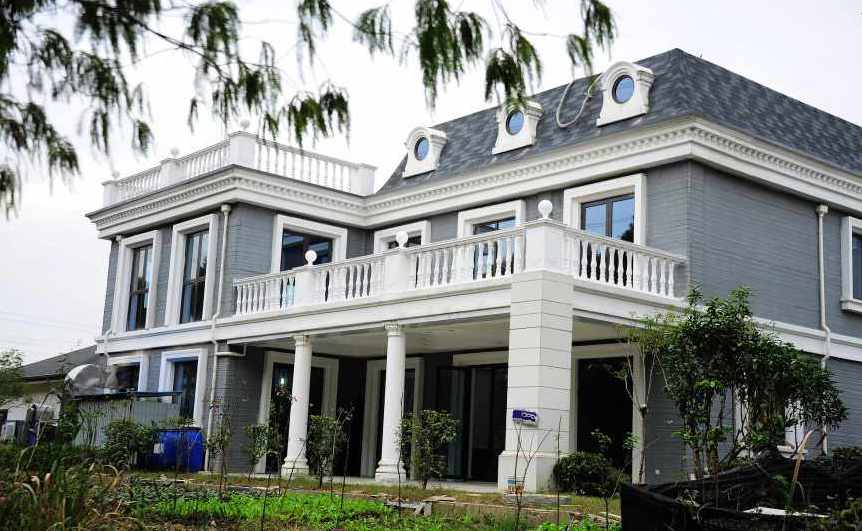Education Law of the People's Republic of China
(Adopted at the third session of the eighth National People's Congress on March 18, 1995, promulgated by Order No.45 of the President of the People's Republic of China on March 18, 1995 and effective as of September 1, 1995)
Chapter I General Provisions
Article 1 With a view to developing educational undertakings, improving the quality of the whole nationality, accelerating the construction of the socialist material and spiritual civilization and in accordance with the Constitution of the People's Republic of China, the present Law is hereby formulated.
Article 2 The present Law shall be applicable to all kinds of education at all levels within the territory of the People's Republic of China.
Article 3 In developing the socialist educational undertakings, the state shall uphold Marxism-Leninism, Mao Zedong Thought and the theories of Constructing socialism with Chinese characteristics as directives and comply with the basic principles of the Constitution.
Article 4 With education being the foundation for construction of socialist modernization, the state shall give priority to the development of educational undertakings.
The whole society shall pay attention and render support to the educational undertakings.
The whole society shall respect teachers.
Article 5 Education shall serve the construction of socialist modernization, be combined with production and labour and satisfy the needs of training constructors and successors with all round development of morality, intelligence and physique for the socialist cause.
Article 6 The state shall conduct education among education receivers in patriotism, collectivism and socialism as well as in ideals, ethics, discipline, legality, national defence and ethnic unity.
Article 7 Education shall be carried out in the spirit of inheriting and expanding the fine historical and cultural traditions of the Chinese nation and assimilating all the fine achievements of the civilization progress of human beings.
Article 8 Education activities shall be in the benefit of public interests of the state and the society.
The state shall separate education from religion. Any organization or individual may not employ religion to obstruct activities of the state education system.
Article 9 Citizens of the People's Republic of China shall have the right and duty to be educated.
Citizens shall enjoy equal opportunity of education regardless of their nationality, race, sex, occupation, property or religious belief etc.
Article 10 The state shall help all minority nationality regions develop educational undertakings in light of the characteristics and requirements of different minority nationalities.
The state shall support the development of educational undertakings in remote border areas and poverty-stricken areas.
The state shall support the development of educational undertakings for disabled people.
Article 11 The state shall fit in with the needs of the development of socialist market economy and the social progress, accelerate educational reform, promote the coordinated development of all kinds of education at all levels, establish and perfect the whole life education system.
The state shall support, encourage and organize scientific research on education, spread the scientific research achievements on education and improve the quality of education.
Article 12 The Chinese language, both oral and written, shall be the basic oral and written language for education in schools and other educational institutions. Schools or other educational institutions which mainly consist of students from minority nationalities may use in education the language of the respective nationality or the native language commonly adopted in that region.
Schools and other educational institutions shall in their educational activities popularize the nationally common spoken Chinese and the standard written characters.
Article 13 The state shall offer awards to those organizations and individuals who have made distinguished contributions to the development of educational undertakings.
Article 14 The State Council and all local People's government at different levels shall supervise and manage the educational work according to the principle of management by different levels and division of labour with individual responsibility.
Secondary and lower education shall be managed by the local People's government under the leadership of the State Council.
Higher education shall be managed by the State Council and the People's government of province, autonomous region or municipality directly under the central government.
Article 15 The department of the State Council in charge of educational administration shall be responsible for the educational works of the whole country, make overall plans and coordinate the management of educational undertakings of the whole country.
The departments in charge of educational administration under the local People's government at and above the county level shall be responsible for the educational works within the jurisdiction of the respective administrative region.
Other relevant departments of the People's government at and above the county level shall be responsible for relevant educational works within their terms of reference.
Article 16 The State Council and the local People's government at and above the county level shall report to the People's congress at the respective level or its standing committee on educational works, budgets and financial accounts of educational expenditures and submit to their supervision.
Chapter II Basic Educational System
Article 17 The state shall adopt a school education system including infant school education, primary education, secondary education and higher education.
The state shall establish scientific school system. Regulations in regard to institution of schools and other educational institutions within the school system, forms of education, length of schooling, admissions requirements and educational objectives shall be formulated by the State Council or the departments in charge of educational administration so authorized by the State Council.
Article 18 The state shall adopt a nine-year compulsory education system.
The People's government at different levels shall adopt every measure to ensure children and juveniles of school age to go to school.
Parents and guardians of children and juveniles of school age and relevant social organizations or individuals shall have the duty to ensure that children and juveniles of school age complete the compulsory education of a prescribed length.
Article 19 The state shall adopt a vocational education system and an adult education system.
The People's government at different levels, relevant administrative departments, enterprises and institutions shall adopt measures to develop and ensure for citizens vocational school education or vocational training in various forms.
The state shall encourage the development of adult education in various forms and make sure that citizens receive proper forms of education in politics, economy, culture, science, technology, profession and whole life education as well.
Article 20 The state shall adopt a national examination system of education.
The national educational examinations shall be categorized by the department in charge of educational administration under the State Council and be conducted by institutions authorized by the state to organize examinations.
Article 21 The state shall adopt a schooling credentials system.
Schools and other educational institutions with the approval or consent of the state shall award schooling credentials or other schooling certificates according to corresponding regulations of the state.
Article 22 The state shall adopt a academic degree system.
The units who confer academic degrees shall confer correspondent titles of academic degree upon people who have achieved certain academic standards or professional standards of technology and award the correspond academic credentials.
Article 23 The People's government at different levels, self-managed mass organizations at grass-roots level and organizations in enterprises and institutions shall take every measure to develop education to eliminate illiteracy.
Citizens who according to the state statutes have the capacity to receive education intended for elimination of illiteracy shall receive such education.
Article 24 The state shall adopt educational inspection system and educational assessment system for schools and other educational institutions.
Chapter III Schools and Other Educational Institutions
Article 25 The state shall formulate plans for educational development and institute schools and other educational institutions.
The state shall encourage enterprises, institutions, mass associations, other social organizations and private citizens to establish schools and other educational institutions according to law.
Any organization or individual may not establish schools or other educational institutions for the purpose of making profit.
Article 26 The establishment of schools or other educational institutions shall be subject to the following requirements of availability:
(1) organized institution and constitution;
(2) qualified teachers;
(3) teaching and learning rooms, facilities and equipment that meet the prescribed standards;
(4) funds necessary for operation of the school and steady source of capital injection.
Article 27 The establishment, change or termination of a school or other educational institution shall go through procedures of examination, approval, registration or record according to corresponding state stipulations.
Article 28 A school or other educational institution shall exercise following rights:
(1) autonomous management according to constitution;
(2) organizing and conducting educational activities:
(3) recruiting students or other education receivers;
(4) exercising school administration over education receivers and awarding prize or imposing punishment;
(5) awarding corresponding schooling credentials upon education receivers;
(6) employing teachers or other staff and awarding prizes or imposing punishments;
(7) managing and using facilities and capitals of the own unit;
(8) refusing to accept any illegal interference into the educational and teaching/learning activities by any organization or individual;
(9) other rights as provided for by the law and regulations.
The state shall protect schools and other educational institutions from breach of their legitimate rights and interests.
Article 29 Schools and other educational institutions shall perform following duties:
(1) obeying the law and regulations;
(2) implementing the state directives on education, practising the state educational and teaching/learning standards and guaranteeing the quality of teaching and learning;
(3) safeguarding the legitimate rights and interests of the education receivers, teachers and other staffs;
(4) providing convenience in a proper manner for education receivers and their guardians to be informed of the receivers' school achievements and other results;
(5) charging fees according to relevant state prescriptions and making public the charges;
(6) submitting to supervision according to law.
Article 30 Schools and other educational institutions sponsors shall decide on the management of schools and other educational institutions according to concerned state regulations.
Headmasters or chiefs of schools and other educational institutions shall be those who are of the Chinese nationality, residing in the territory of China and fit for the conditions prescribed by the state. Their appointment and removal shall be made according to corresponding procedures provided for by the state. Headmasters of schools shall be held responsible for teaching/learning activities and administration.
Schools and other educational institutions shall guarantee the participation of teachers and staffs in democratic management and supervision through the organic form such as the teachers and staffs congress mainly consisting of teachers in accordance with relevant provisions of the state.
Article 31 Schools and other educational institutions which have satisfied conditions for legal persons shall obtain the status of legal persons from the date of approval or registration of legal persons.
Schools and other educational institutions shall enjoy civil rights and interests and bear civil liabilities in civil activities according to law.
State owned assets of schools and other educational institutions shall be within the ownership of the state.
Enterprises sponsored by schools and other educational institutions shall solely undertake civil liabilities of their own.




















